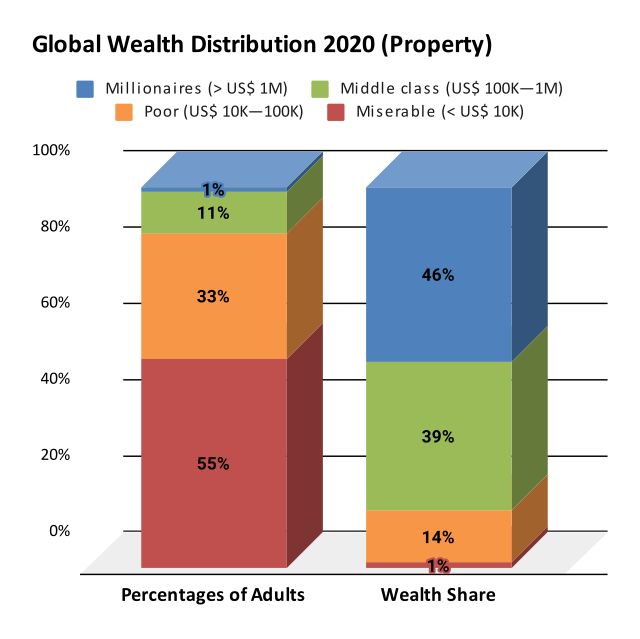Malawi, a landlocked country in southeastern Africa, boasts not only natural beauty but also some incredibly wealthy individuals. These top-tier earners have amassed their fortunes through various industries, from agriculture and telecommunications to banking and real estate. Their financial success stories offer a glimpse into the economic landscape of Malawi.
This article delves into the net worths of Malawi’s richest people, ranking them based on their financial achievements. Discover who tops the list and how they built their empires in this vibrant yet often overlooked economy.
Understanding Net Worth
Net worth measures an individual’s financial health by calculating the difference between assets and liabilities. It’s a crucial metric for ranking the richest people in Malawi.
Definition and Importance
Net worth represents total assets minus total liabilities. Assets include cash, investments, real estate, and valuable possessions. Liabilities encompass debts like mortgages, loans, and credit card balances. Understanding net worth helps gauge financial stability and wealth accumulation over time.
Factors Influencing Net Worth
Several factors impact net worth:
- Income: Higher earnings from salaries or businesses increase net worth.
- Investments: Stocks, bonds, and other investments grow wealth.
- Real Estate: Property values contribute significantly to asset totals.
- Debt Management: Lower liabilities enhance net worth.
- Economic Conditions: Market trends affect asset values.
These elements collectively determine an individual’s financial standing in Malawi’s economy.
Overview of Malawi’s Economy
Malawi’s economy is diverse, with key sectors contributing to the nation’s wealth. Agriculture, telecommunications, banking, and real estate play significant roles in shaping financial success.
Economic Sectors Driving Wealth
Agriculture remains a cornerstone of Malawi’s economy. It employs over 80% of the population and contributes approximately 30% to GDP. Key crops include tobacco, tea, sugarcane, and maize.
Telecommunications has seen rapid growth due to increased mobile phone penetration. Companies like TNM and Airtel dominate this sector, driving substantial revenue.
Banking in Malawi is expanding with institutions like National Bank of Malawi and Standard Bank leading the market. They offer various financial services that support both individual and corporate clients.
Real estate development is on the rise in urban areas such as Lilongwe and Blantyre. This sector attracts investments from both local entrepreneurs and foreign investors.
Challenges and Opportunities
Challenges in Malawi’s economy include limited infrastructure, frequent power outages, and reliance on rain-fed agriculture which makes it vulnerable to climate change impacts.
Opportunities exist in diversifying agricultural practices through irrigation systems to mitigate climate risks. Expanding renewable energy sources can address power shortages while fostering sustainable development.
Investments in technology infrastructure could further boost telecommunications growth. The banking sector can leverage digital solutions for greater financial inclusion across rural areas.
Overall these challenges present avenues for innovation that could drive future economic prosperity in Malawi.
Top Richest People in Malawi
Malawi’s wealthiest individuals have amassed fortunes through various industries. Their net worth reflects their success and influence in the country’s economy.
Criteria for Ranking
The ranking of Malawi’s richest people is based on their net worth, calculated by evaluating assets minus liabilities. Factors include ownership stakes in companies, real estate holdings, investments, and other financial interests. Publicly available data from financial reports and market valuations provide the basis for these assessments.
Diversity in Wealth Sources
The sources of wealth among Malawi’s richest are diverse:
- Agriculture: Many top earners have significant investments in agriculture, including crop production and livestock farming.
- Telecommunications: Ownership or major stakes in telecom companies contribute to substantial wealth.
- Banking: Investments and leadership roles in banking institutions play a crucial role.
- Real Estate: Property development and ownership add considerable value to personal fortunes.
These sectors highlight the varied avenues through which Malawians achieve financial success.
Profiles of Prominent Figures
Malawi’s wealthiest individuals come from diverse sectors. Their profiles highlight their contributions to the nation’s economy.
Business Tycoons
Thom Mpinganjira: Founder of FDH Financial Holdings, Thom Mpinganjira has a net worth estimated at $145 million. His investments span banking and real estate.
Jimmy Koreia Mpatsa: With a net worth around $100 million, Jimmy Koreia Mpatsa is known for his ventures in transportation and logistics through Mpatsa Holdings Limited.
Simbi Phiri: Chairman of Khato Civils, Simbi Phiri’s net worth stands at approximately $85 million. He has made significant strides in construction and infrastructure development.
Emerging Entrepreneurs
Limbani Kalilani (Tay Grin): A renowned musician turned entrepreneur, Tay Grin has diversified into agriculture with an estimated net worth of $5 million. His ventures include commercial farming and agribusiness.
Rachel Sibande: Founder of mHub, Malawi’s first technology hub, Rachel Sibande focuses on tech innovation and entrepreneurship. Her initiatives have garnered her an estimated net worth of $3 million.
These figures exemplify the varied paths to wealth in Malawi, showcasing success across multiple industries.
Impacts of Wealth in Malawi
Wealth concentration among Malawi’s richest individuals significantly influences the country’s economic and social landscapes.
Economic Impact
Affluent Malawians drive economic growth through investments. Sectors like agriculture, telecommunications, banking, and real estate see substantial capital influx from these wealthy individuals. For example, Thom Mpinganjira’s investments in banking and real estate create jobs and stimulate local economies. Similarly, Jimmy Koreia Mpatsa’s transportation ventures improve infrastructure and logistics efficiency.
Social Contributions
Rich individuals contribute to societal development via philanthropy and community projects. Simbi Phiri funds educational initiatives that enhance literacy rates. Emerging entrepreneurs like Rachel Sibande support technology innovation by providing training programs for youth. These contributions foster skill development and uplift communities across Malawi.
Conclusion
The wealthiest individuals in Malawi play a pivotal role in shaping the nation’s economic and social landscapes. Their investments span various sectors, driving job creation and stimulating local economies. Beyond their business ventures, these affluent figures significantly contribute to societal development through philanthropy.
Their efforts in education, technology innovation, and community upliftment demonstrate a commitment to improving lives across Malawi. As they continue to grow their fortunes, their influence on the country’s progress remains substantial. The stories of Thom Mpinganjira, Jimmy Koreia Mpatsa, Simbi Phiri, and others highlight how wealth can be leveraged for broader societal benefits.
Ultimately, the concentration of wealth among these top individuals underscores both opportunities and responsibilities that come with financial success in Malawi.

